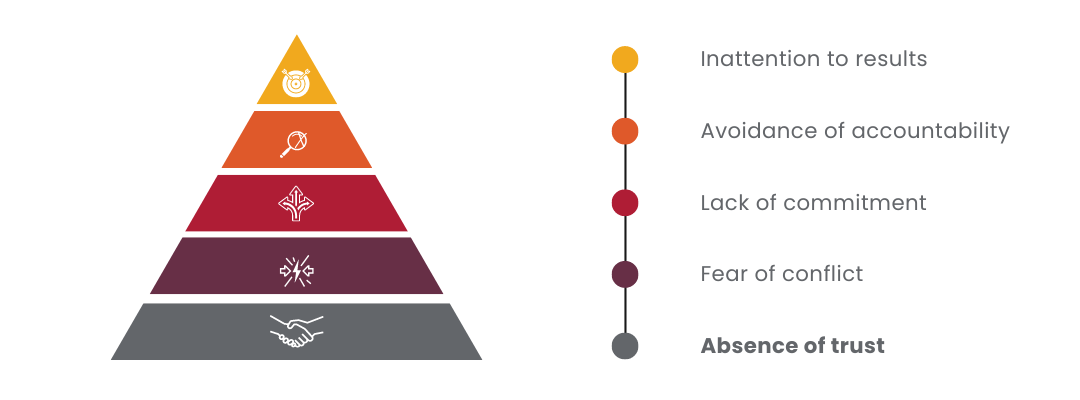Trust is key to effective local leadership
Trust is the foundation upon which all successful teams are built. It is the essential ingredient that fosters collaboration, open communication, and high performance. However, trust is not an automatic outcome when a group of individuals come together to govern a large complex organisation in a political environment. It must be intentionally nurtured and developed. It is also a fragile thing - easy to break and hard to regain. If trust has broken down between councillors and dysfunction is starting to creep into the elected body, it takes a strong and skilled leader to begin the process of repairing broken bridges.
In this blog, we unpack why trust is the foundation of an effective elected council body and share five ways councillors can contribute to the building of trust within their council. We also explored why trust is foundational to your success in our on-demand webinar with leadership expert, Blyde Neser from Professional Coaching Solutions.
In this blog, we unpack why trust is the foundation of an effective elected council body and share five ways councillors can contribute to the building of trust within their council. We also explored why trust is foundational to your success in our on-demand webinar with leadership expert, Blyde Neser from Professional Coaching Solutions.
Defining trust within a team

Trust within an elected council
Building blocks of trust
Self-awareness: The foundation of trust
Self-awareness is the foundation of within teams and groups. It involves having a deep understanding of oneself, including strengths, weaknesses, values, and triggers. When councillors possess self-awareness, they can authentically show up, acknowledge their limitations, and seek growth opportunities. Self-awareness enables individuals to be vulnerable, admit mistakes, and ask for help, fostering an environment where trust can thrive.
Value alignment: Building common ground
When team members share similar values and a common purpose, they feel a sense of connection and trust. Aligning values means establishing clear expectations and holding a shared vision - focusing on your common purpose to serve your community is an easy one but delve a little deeper and see if you share other common passions or values. Having shared values does not mean you will always agree with each other, but you can respect each other.
Effective communication: The bridge for trust
Open and effective communication is essential for building and maintaining trust. Transparent and timely communication promotes clarity, understanding, and collaboration. Councillors should actively listen, speak mindfully, and provide constructive feedback that speaks to the issue and not be personal in nature. Empathetic communication builds trust by reducing misunderstandings and ensuring that everyone feels heard and valued. Communication is an art – gone are the days of authoritarian communication styles, modern leaders must be skilled in mindful communication.
Feedback: A catalyst for growth
Feedback is a vital component of trust-building within teams but it can be a tricky one to navigate as a councillor, particularly when the feedback is to be given to another councillor about their behaviour. Constructive feedback promotes growth, learning, and improvement. Providing feedback to your councillor colleagues requires deeply respectful communication at a mutually agreeable time and should focus on outcomes or gaining a better understanding of each other. When feedback is given and received with trust as its foundation it fosters a culture of continuous improvement.
Self-Leadership: Trust begins within
Self-leadership refers to taking personal responsibility for your actions, behaviours, and contributions to the team. Trust flourishes when team members demonstrate reliability, accountability, and a commitment to their role and shared goals. For example, owning up to your mistakes or being able to recognise when you may have overstepped the mark with a comment. When each councillor takes ownership of their actions, it enhances trust and creates a culture of mutual respect and support.
Want to strengthen trust in your council?
Want to dive deepr into conflict into councils?
Write your awesome label here.
On-demand webinar
Explore ways to build team cohesion by collaborating with other councillors and learn how to address early signs of dysfunction within the elected Council
Learn, lead & succeed
Subscribe now!
Thank you!

